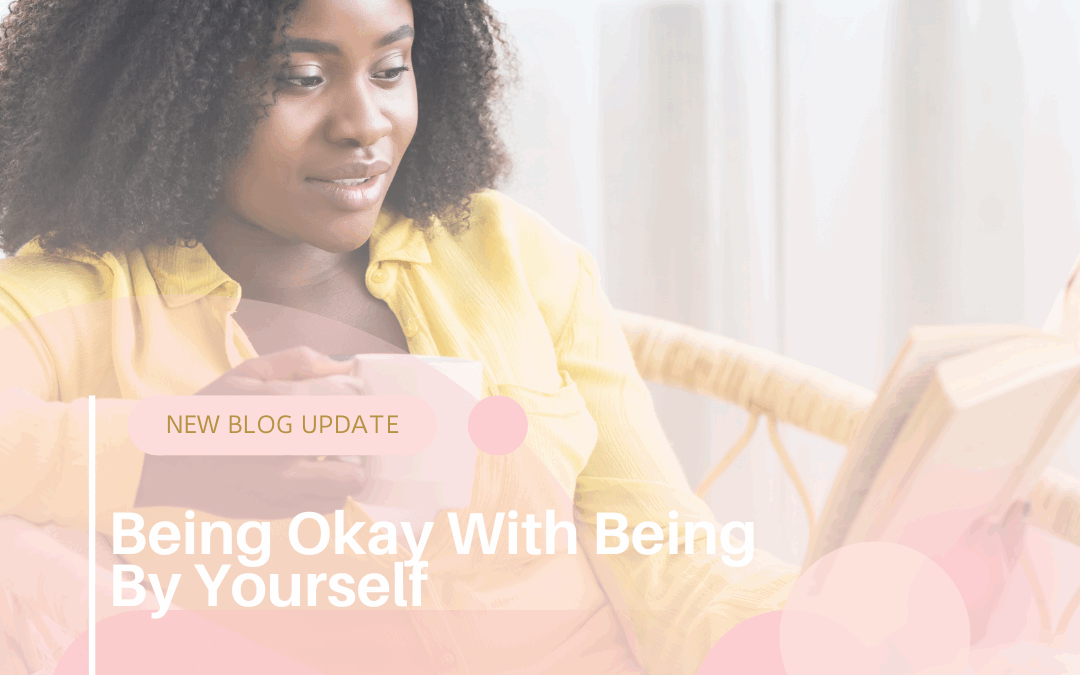There’s a quiet kind of fear that creeps in when we’re left alone. Not in a horror-movie sense, but in a deeply human way. No distractions. No validation. Just you—and your own thoughts.
For many, being alone feels heavy. Awkward. Unnatural. But learning to be okay with your own company is one of the most powerful forms of emotional maturity. It’s not about isolation. It’s about reconnection—with yourself.
The Difference Between Loneliness and Solitude
Before we go further, let’s name something important:
-
Loneliness is a lack. An ache. A hunger for closeness that isn’t being met.
-
Solitude is presence. A space where you’re not empty, but full of your own attention.
They can feel similar on the surface, but they’re rooted in different emotional soil.
And the difference often comes down to intention.
Why Being Alone Feels So Uncomfortable
If being by yourself feels uncomfortable, you’re not broken. You’re responding to some powerful inner wiring:
1. You’ve Tied Your Worth to Others
Many of us were conditioned—consciously or not—to believe that being liked, needed, or wanted equals being valuable. So being alone feels like evidence that we’re not enough on our own.
2. You’ve Never Learned How to Sit With Your Feelings
When you’re always surrounded by people or plugged into devices, your inner emotional world doesn’t get much airtime. Solitude removes those buffers—and that can be jarring.
3. You’re Facing the Fear of Emptiness
There’s a subtle fear beneath all the distractions: If I stop filling the space, what will be left? Learning to be okay with being alone means facing that silence—and realizing it’s not as scary as it seems.
What Being Okay With Yourself Doesn’t Mean
-
It doesn’t mean rejecting relationships.
-
It doesn’t mean being emotionally self-sufficient 100% of the time.
-
It doesn’t mean pretending you don’t want connection.
Being okay alone isn’t a performance of independence.
It’s the foundation that makes healthy connection possible.
How to Practice Being With Yourself
🕯 1. Start Small
Try spending 10–15 minutes with no music, no phone, no external input. Go for a walk. Sit on your porch. Notice what it feels like to just be.
📓 2. Write, Even When You Don’t Know What to Say
Journaling is a powerful way to get reacquainted with yourself. Let it be messy. Let it be honest. You’re not performing here—you’re arriving.
🎧 3. Listen to Your Internal Dialogue
What do you say to yourself when you’re alone? Are you kind? Critical? Distracted? Your solitude reveals your self-relationship.
🫶 4. Make Alone Time Meaningful—Not Punitive
It’s not a punishment. Light a candle. Make a cup of tea. Do something slow and nourishing. Let your alone time feel like a gift to yourself.
🧘♀️ 5. Practice Presence, Not Productivity
You don’t have to do anything to earn your time alone. You can simply be.
Final Thoughts: You Are a Home You Can Come Back To
You are not a problem to fix. You’re a person to get to know.
When you learn to sit with yourself—without judgment, distraction, or urgency—you begin to realize something sacred:
You are a whole experience.
You’re not empty.
You’re not lacking.
You’re enough, even in stillness.
Learning to be okay alone is learning to come home to yourself. And that’s not loneliness—that’s liberation.


Recent Comments